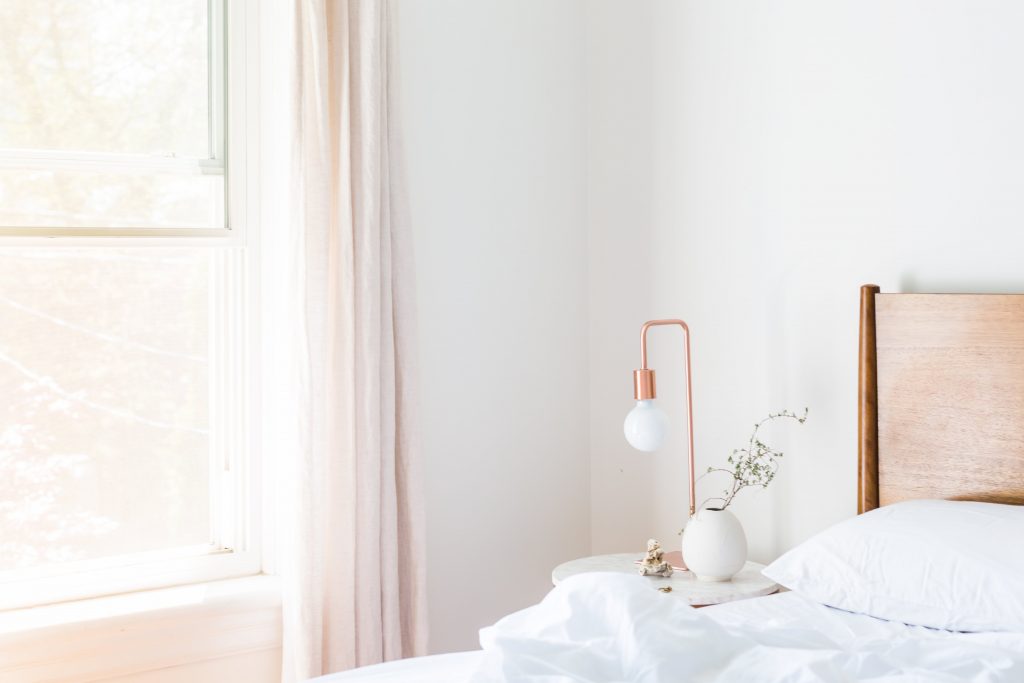Do you ever experience days where it seems like the world is against you? Days when the most mundane sounds and the smallest interruptions to your plans leave you aggravated? Days that seem to have it out for you from the moment you wake up. Breakfast isn’t quite right, your hot beverage isn’t as hot as it should be, and your commute has you on the busiest street, crossing paths with the noisiest civilians and drivers who can’t seem to keep their hands off of the horn for more than a few seconds and you land in an argument with a friend or a colleague as soon as you get to your school or workplace. As the day progresses so does your aggravation and you find yourself overwhelmed and can’t seem to decide whether the best course of action would be to yell at everyone and give them a piece of your mind or shed tears and let it all out.
On days like this, the best thing to do maybe a little less dramatic but effective nonetheless would be to wait and sleep it off. If things that normally don’t upset you are suddenly setting off arguments and things not going according to your plans are leaving you irritable than perhaps you are sleep deprived.
Sleep is a basic physiological need for humans of all ages. Babies who don’t get enough sleep will get cranky, fussy and cry until they’re put to bed. Adults aren’t that different, lack of sleep affects us too but it disguises and manifests itself in a way we may not recognize immediately.
Our life spent awake demands more from us as we grow older and sleep becomes much less of a priority and for many, proper rest becomes less of a necessity and more of a luxury. Unfortunately, many people fail to realize that our sleep and mental health are more connected than we like to believe; lack of sleep can lead to increased irritability, short temper, poor response to stress and even impaired academic performance. Long term sleep deprivation has also shown to lead to depression and anxiety.
Not getting enough sleep can have one overthinking and having negative thoughts over the smallest of interactions and situations, it keeps us from thinking rationally.
Early symptoms of sleep deprivation also include physical symptoms, like headaches, back pain, fatigue, and stomachaches and so on. Even experiencing a couple of the physical and/or mental symptoms of sleep deprivation can have a long lasting and detrimental effect on our personal lives and relationships.
We live in a time where people glorify “hustle culture” and your worth as a person is directly related to how productive or busy you keep yourself, with this shift in people’s mindsets it has become more common and acceptable to dismiss the importance of sleep.
Islam discourages extremes, just like sleeping too much is not liked, so is the lack of sleep. There is great importance placed on rest in our religion. It is one of the signs of the greatness of Allah swt. Furthermore, Allah swt says in The Qur’an: “And We have made your sleep as a thing for rest.” (78:9)
Ibn Uthaymeen said: ‘“And We have made your sleep as a thing for rest” means: to put an end to tiredness, because sleep puts an end to that which comes before it of tiredness, and a person renews his energy thereby for what lies ahead. Hence you see that if a man becomes tired and sleeps, he is refreshed and his energy is renewed. This is a blessing and it is also one of the signs of Allaah..’
While sleeping too much has its negative effects, Scholars also agree that resisting sleep when your body needs is not something we should do. Shaykh Muhammad ibn Ahmad al-Safaareeni (may Allaah have mercy on him) said:
“It is not right to resist sleep a great deal and stay up late often. Resisting and avoiding sleep will lead to other problems such as bad moods, muddled thinking, and exhaustion that prevents one from understanding and working properly, and it can lead to many fatal illnesses.”
Making a habit out of staying up too late is not healthy but if it is something that your current circumstances demand, then you should do so but without sacrificing your sleep entirely.
The Prophet PBUH would also take mid-day naps, also known as Qailulah, so that he would have the strength to stay up and worship late in the night and would encourage others to do the same. The Prophet PBUH said: “Take a nap at midday, for the Shaytaan does not take a nap at midday.” Narrated by at-Tabaraani in al-Awsat, 28; classed as hasan by al-Albaani in as-Saheehah, 1647.
An important point to be noted from all the above is that our religion takes the matters of our health and well being seriously as it affects the quality of our worship and relationships. Yet, we are so quick to dismiss and neglect our health until we are tested with it.
Our bodies are an amanah from Allah swt and so we should ensure that we take care of them in the best way possible. In today’s busy and demanding world, we must take the time to slow down and rest so that we can give our best to the world. So on a day where you find yourself feeling anxious, upset and irritable over small things, take a step back to check if you’ve had the rest you needed, you’ll often find that that’s all you need to get back on track, sleep.
If you find it difficult to fall asleep, make sure you’re not exchanging precious minutes or maybe even hours of sleep for mindless scrolling sessions on your phone at night and practice good sleep hygiene more by sleeping at the same time every night, avoiding over consumption of caffeine, especially in the evenings etc.
Reference



